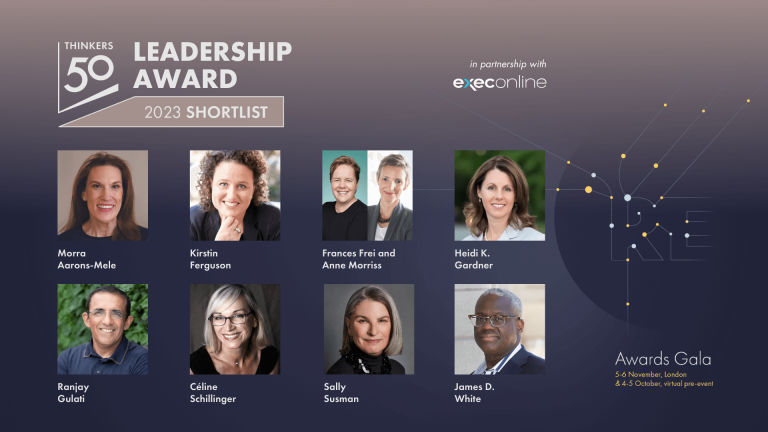

I have not met a single leader in the past 2-3 years, who did not know and feel, that the times are changing.
The paradigm shift of leadership is omnipresent, and clearly driven by advances in society, arts, literature, music – and naturally by the immense development in technology. This is referred to as the fourth industrial revolution; or the first digital revolution. The question is, how does the modern leader think and act in this turmoil of change? One way of answering this is by describing the mindset of the responsive, modern leader.
First and foremost, the modern leader is a responsive leader. That is, it’s a leader that has “try, inspect, adapt” deeply engraved in his behaviour and thinking. The responsive leader is fully aware of the threats of a business world in tremendous development, but also see it as an unprecedented opportunity to rethink and redesign the existing structures and practises of the business model, the organization, and the delivery methods. On one hand, you’re under constant pressure to be fast enough to develop innovative solutions before your competitors, who might come from unfamiliar places or even from seemingly unrelated industries. On the other hand, you have the possibility to exploit both the new technological landmarks and the changes in attitude to work to the benefit of your customers, your employees, and yourself.
The responsive leader seeks input and encourages all employees to be part of this curious and explorational way of adapting to the future; and to shaping the future. The leaders allow the employees to experiment to gather learning moments, and strives to make everybody a part of this movement. It is not enough that innovative thinking happens in R&D or in special project labs. The approach to shaping the future should be something, that everybody is part of.
This “try, inspect, adapt”-approach applies to many different dimensions of leadership, from strategy to innovation, from culture to organization.
Classic strategy execution is being replaced by something that is way more adaptable, and embraces the fact that we are less able to predict the development in technology and marked demands. Instead of waterfall planning, forecasting, payback calculations, regular business reviews, and mitigation plans, more and more leaders are seeking purpose and dreams as their means of setting direction. These dreams and purposes are often formulated as problem statements instead of product deliveries or ambitions on size or capabilities. No-one cares about how big you are; instead we care about what problems you’re solving and the value you’re creating. And now you’re at it, why not aim your business at solving one of the Global Grand Challenges described by SingularityU, or supporting one of the 17 Sustainable Development Goals described by the UN.
With that dream – or purpose – in place, the responsive leader instills curiosity and courage in everyone to test and experiment with approaches and technology, that can support him and the organization in solving the problems. This calls for an understanding of the innovation spectrum, from everyday LEAN improvements over business development to radical pivoting with disruptive technology. The thinking is, that by solving problems for the customers – or the employees – you work in arenas, not in industries or in product categories. It’s a holistic understanding of the customer experience, that must be the driver and motivator for all activities, services, and projects.
This also calls for a new approach to organizations, which become way more adaptable to the context needed: The flexibility of “organizing” is a clear advantage. The modern organizations are capable of organizing themselves around the problem that needs to be solved, and the value that you create. This is also called “teaming”.
This mantra of having an ambitious problem to solve as an organization is a clear lever for identity and a sense of belonging, which is also a huge part of the organizational culture in the modern workplace. We don’t go to work; instead we belong here. The modern culture is viscous, that is, clearly defined, but with a flexibility to adjust for initiatives from the inside, and for gig workers and partners from the outside. The culture is defined by trust, belonging, identity, and very frequent touchpoints between leader and employee. The monthly 1-on-1 is not fitting anymore; instead continuous dialogue and expectation management is needed. Clearly, the responsive leader has a “people first” approach, and the human skills are highly praised.
Finally, the responsive leader starts measuring success – both as leader and for the organization – in two new dimensions on top of the financial goals: Social capital, and value creation. The responsive leader wants to document and measure the development in relationships and connectivity, that is, the social capital inside the organisation, and outside with the customers and the community that they are a part of. And, tying the loop back to the problem solving, dreams, and purpose, the responsive leader monitors and measures the functional, emotional, and societal value, that they create by solving the problems.
The mindset of the modern leader is one part old-school thinking and five parts new-school thinking. The responsive leader knows how to mix-and-dose these approaches. This is a clear paradigm shift.
Erik Korsvik Østergaard is author of The Responsive Leader(LID Publishing) and a partner in Bloch&Østergaard, which he founded in 2013.

Thinkers50 Limited
The Studio
Highfield Lane
Wargrave RG10 8PZ
United Kingdom

Thinkers50 Limited
The Studio
Highfield Lane
Wargrave RG10 8PZ
United Kingdom

| Cookie | Duration | Description |
|---|---|---|
| LANG | 9 hours | Linkedin set this cookie to set user's preferred language. |
| nsid | session | This cookie is set by the provider PayPal to enable the PayPal payment service in the website. |
| sp_landing | 1 day | The sp_landing is set by Spotify to implement audio content from Spotify on the website and also registers information on user interaction related to the audio content. |
| sp_t | 1 year | The sp_t cookie is set by Spotify to implement audio content from Spotify on the website and also registers information on user interaction related to the audio content. |
| tsrce | 3 days | PayPal sets this cookie to enable the PayPal payment service in the website. |
| x-pp-s | session | PayPal sets this cookie to process payments on the site. |
| __cf_bm | 30 minutes | This cookie, set by Cloudflare, is used to support Cloudflare Bot Management. |
| Cookie | Duration | Description |
|---|---|---|
| l7_az | 30 minutes | This cookie is necessary for the PayPal login-function on the website. |
| Cookie | Duration | Description |
|---|---|---|
| CONSENT | 2 years | YouTube sets this cookie via embedded youtube-videos and registers anonymous statistical data. |
| _ga | 2 years | The _ga cookie, installed by Google Analytics, calculates visitor, session and campaign data and also keeps track of site usage for the site's analytics report. The cookie stores information anonymously and assigns a randomly generated number to recognize unique visitors. |
| _gat_gtag_UA_10408481_1 | 1 minute | Set by Google to distinguish users. |
| _ga_ZP8HQ8RZXS | 2 years | This cookie is installed by Google Analytics. |
| _gid | 1 day | Installed by Google Analytics, _gid cookie stores information on how visitors use a website, while also creating an analytics report of the website's performance. Some of the data that are collected include the number of visitors, their source, and the pages they visit anonymously. |
| Cookie | Duration | Description |
|---|---|---|
| NID | 6 months | NID cookie, set by Google, is used for advertising purposes; to limit the number of times the user sees an ad, to mute unwanted ads, and to measure the effectiveness of ads. |
| test_cookie | 15 minutes | The test_cookie is set by doubleclick.net and is used to determine if the user's browser supports cookies. |
| VISITOR_INFO1_LIVE | 5 months 27 days | A cookie set by YouTube to measure bandwidth that determines whether the user gets the new or old player interface. |
| YSC | session | YSC cookie is set by Youtube and is used to track the views of embedded videos on Youtube pages. |
| yt-remote-connected-devices | never | YouTube sets this cookie to store the video preferences of the user using embedded YouTube video. |
| yt-remote-device-id | never | YouTube sets this cookie to store the video preferences of the user using embedded YouTube video. |
| yt.innertube::nextId | never | This cookie, set by YouTube, registers a unique ID to store data on what videos from YouTube the user has seen. |
| yt.innertube::requests | never | This cookie, set by YouTube, registers a unique ID to store data on what videos from YouTube the user has seen. |
| Cookie | Duration | Description |
|---|---|---|
| DEVICE_INFO | 5 months 27 days | No description |
| loglevel | never | No description available. |
| m | 2 years | No description available. |
Thinkers50 Limited has updated its Privacy Policy on 28 March 2024 with several amendments and additions to the previous version, to fully incorporate to the text information required by current applicable date protection regulation. Processing of the personal data of Thinkers50’s customers, potential customers and other stakeholders has not been changed essentially, but the texts have been clarified and amended to give more detailed information of the processing activities.